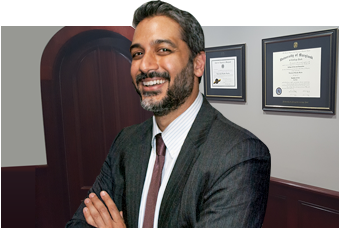Confidential Informants: Can They Be Trusted?

We’ve all seen the way Hollywood treats confidential informants. While in some cases they are regular ol’ citizens doing the right thing on behalf of their communities, just as often they are people with criminal records themselves—even jailhouse snitches—who are working with detectives in order to lessen their own legal peril. The fact is, the use of confidential informants is basically unregulated in this country, leaving room for a lot of error.
False Testimony
Confidential informants (CI’s) are usually essentially selling information in exchange for benefits—like perhaps some help with their own legal situation. The incentive for them to lie is pretty obvious, knowing that if they provide investigators with what they’re looking for, they might serve fewer years behind bars themselves. Sometimes law enforcement fails to corroborate information with other trustworthy (non-informant) sources, making it easy for a CI who is down on their luck, or who battles addictions or other mental/emotional health issues, to make up information in order to create a better position for themselves.
Fake CI’s
It’s not outside the realm of possibility to imagine that, since there are plainly no rules related to CI’s in many departments, an officer could manufacture the existence of an informant altogether, simply to validate the desire to secure a search or to take other police action. Federal and state investigations have proven this exact scenario more than once. Maryland law does protect the identity of CI’s, unless they will be testifying as a witness against the defense. Imagine all the scenarios where such a witness doesn’t testify, yet implicates someone else in a crime!
Jailhouse Snitches
In roughly 20 percent of cases that were later cleared through DNA evidence, the conviction was grounded chiefly on testimony from jailhouse informants. Furthermore, 21 percent of exonerations of death row inmates in this country were convictions that relied on informant testimony. Wrongful convictions related to errant testimony from such witnesses has cost many prisoners so much! And why not? Confidential informants have every incentive to cooperate with a law enforcement investigation, even making up supposed confessions they’ve heard from defendants in exchange for leniency in their own cases. And the defense is frequently not privy to the benefits received by these informants giving them only limited ability to challenge their credibility.
Wrongful Incarceration has a Cost
The penalties for serving time for a crime you didn’t commit go well beyond prison restrictions! The time lost, relationships destroyed, opportunities evaporated… it’s truly unthinkable. Nonetheless, it’s something that people across the country suffer through every day. In addition to the human cost that results from wrongful convictions, nearly $300 million in civil cases and statutory compensation is sapped from government coffers as a result of wrongful convictions.
Criminal Defense
If you’ve been charged with a crime, the dedicated La Plata & Waldorf criminal defense lawyers at The Law Office of Hammad S. Matin, P.A. will fight for you on all fronts, including meticulously examining any information provided to prosecutors by confidential informants. Your defense is a top priority for the aggressive HM defense lawyers. Schedule a confidential consultation today.
Source:
aclu.org/issues/criminal-law-reform/reforming-police/use-confidential-informants-can-lead-unnecessary-and

